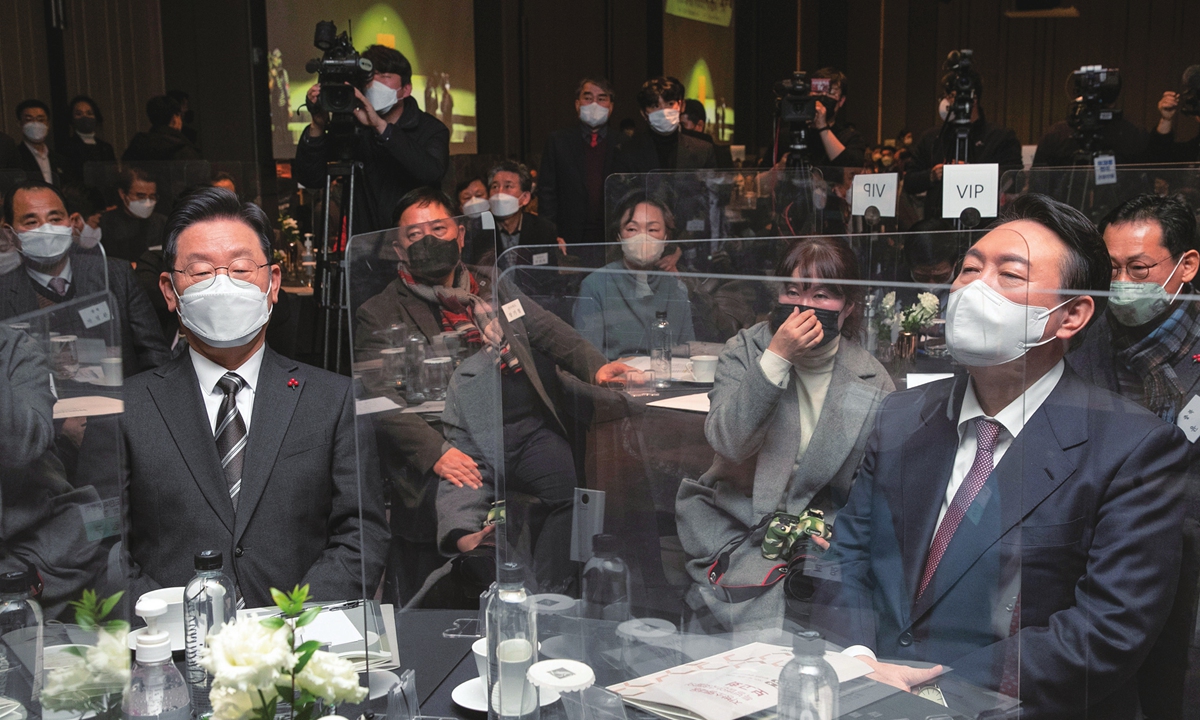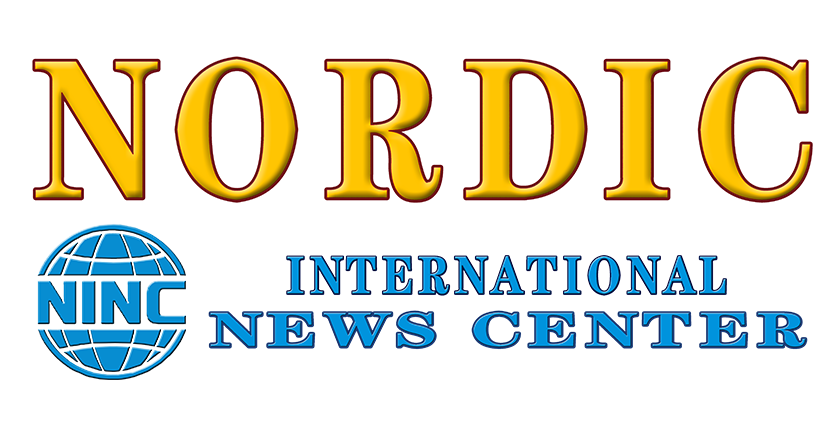
Lee Jae-myung (left), the presidential candidate of the ruling Democratic Party, and Yoon Suk-yeol, the presidential candidate of the main opposition People Power Party, take part in a meeting at a Seoul hotel, South Korea, December 28, 2021, to discuss a parliamentary bill aimed at boosting balanced regional development. The South Korean presidential election is scheduled to be held on March 9, 2022. Photo: Thepaper
South Korea's presidential candidates formally began campaigning on Tuesday in what is set to be the tightest race in 20 years between its two main parties, dominated by scandals that have allowed a third challenger to potentially play the role of kingmaker.
Polls say voters are looking for a president who can clean up polarized politics and corruption, and tackle the runaway housing prices and deepening inequality that have dogged Asia's fourth-largest economy.
A total of 14 candidates have already signed up since official registration opened on Sunday, with Lee Jae-myung, the flag-bearer of the ruling Democratic Party, facing off against Yoon Suk-yeol, from the conservative main opposition People Power Party.
Dubbed the "unlikeable election" due to high disapproval ratings and smear campaigns waged by both sides, Lee and Yoon are neck and neck in polls, although Yoon has maintained a slight lead in recent weeks.
A survey released on Sunday by Realmeter showed 41.6 percent of respondents favored Yoon and 39.1 percent picked Lee, while Southern Post put Yoon just 0.5 percent ahead with 35.5 percent.
That would contrast with the last three presidential elections, which were largely predictable. The upcoming contest could be the closest since 2002 when an opposition challenger lost to former president Roh Moo-hyun by a 2.33 percent margin, or 570,980 votes.
"This is the foggiest election we've seen in a while, it's very rare that a likely winner had yet to emerge just three weeks before the vote," said Bae Jong-chan, a political analyst who runs the Insight K think tank.
A former governor of Gyeonggi province, Lee shot to prominence through his aggressive handling of the coronavirus pandemic and his advocacy of universal basic income.
Reuters
